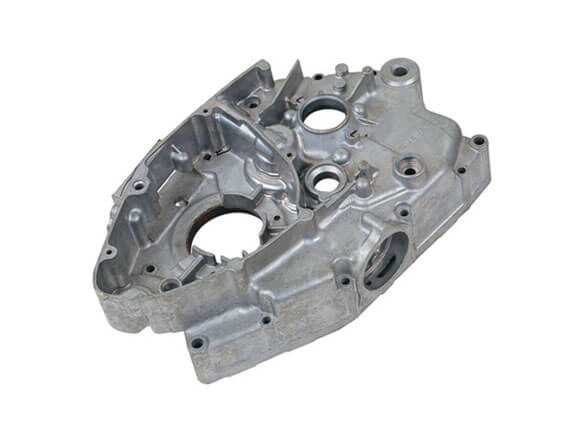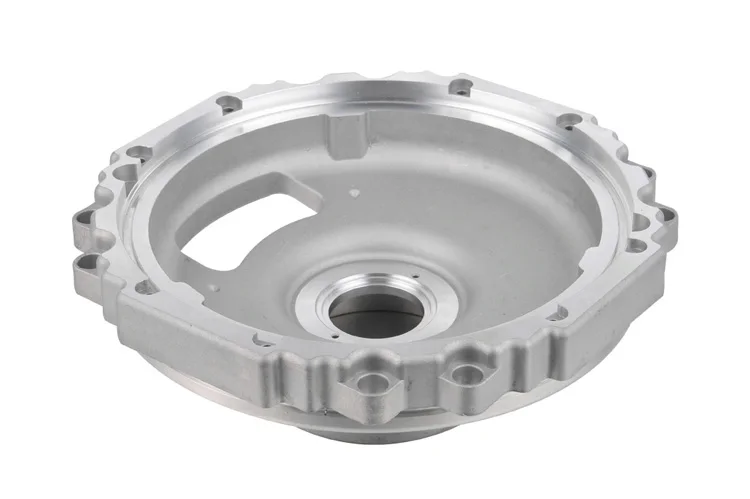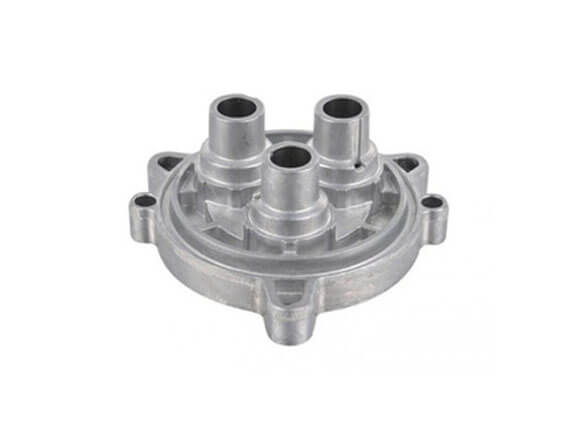Aluminum Casting Company solutions for large-scale manufacturing projects
Wiki Article
The Duty of Aluminum Foundries beforehand Lightweight Manufacturing Solutions
Aluminum foundries significantly contribute to the advancement of light-weight production remedies. Their cutting-edge spreading innovations produce high-strength, light-weight components necessary for sectors like auto and aerospace. This improvement not only boosts product efficiency however also advertises sustainability through making use of recycled materials. As these foundries adjust to emerging innovations and techniques, they lead the way for future advancements in producing effectiveness and environmental duty. What exists ahead in this transformative trip?The Benefits of Lightweight Materials in Production
As markets increasingly look for efficiency and sustainability, the fostering of light-weight products in production has actually become a necessary strategy - aluminum casting. These materials, particularly aluminum and compounds, supply many benefits that enhance manufacturing procedures and product efficiency. Primarily, their lowered weight adds to reduce power consumption throughout transport and operation, leading to considerable expense financial savingsMoreover, lightweight products assist in the layout of more complex geometries, enabling greater innovation in item advancement. This flexibility usually results in improved performance and performance, satisfying the developing needs of modern consumers.
Furthermore, the use of lightweight materials can boost the durability of items as a result of their resistance to corrosion and tiredness. This resilience not just lowers maintenance prices but likewise sustains sustainability initiatives, as longer-lasting products contribute to less waste. To sum up, the advantages of lightweight products are pivotal in driving effectiveness, innovation, and environmental obligation in production.
Technologies in Light Weight Aluminum Spreading Technologies
Current developments in light weight aluminum spreading technologies are reinventing the production landscape, specifically in the manufacturing of light-weight components. Innovations such as high-pressure die casting and vacuum cleaner pass away casting have substantially enhanced the precision and surface area coating of aluminum parts - aluminum casting. These methods permit the development of intricate geometries while minimizing material waste and boosting mechanical homes
Furthermore, the implementation of real-time surveillance systems ensures quality assurance throughout the casting process, resulting in even more consistent product outcomes. Collectively, these innovations not just boost the efficiency of aluminum components yet likewise sustain the market's change in the direction of even more lasting production practices.
Applications of Aluminum Elements in Various Industries
While aluminum parts have actually long been utilized in different markets, their flexibility and lightweight residential or commercial properties proceed to drive innovative applications across markets such as auto, aerospace, and building. In the automotive sector, aluminum is increasingly made use of for engine blocks, wheels, and body panels, enhancing gas performance and efficiency. Aerospace manufacturers utilize light weight aluminum for airplane structures and parts, exploiting on its strength-to-weight ratio to improve gas economic situation and haul capability.In the building and construction market, light weight aluminum is preferred for window frames, roof, and structural components, offering longevity and resistance to deterioration while minimizing total building weight. In addition, the electrical and electronics industries gain from aluminum's conductivity and lightweight nature, using it in circuitry, rooms, and warmth sinks. These varied applications highlight the vital duty of light weight aluminum elements, which not only fulfill market needs however likewise contribute to advancements in product style and functionality throughout multiple fields.
Sustainability and Power Performance in Aluminum Foundries
The light weight aluminum shop market plays a critical function in promoting sustainability and energy effectiveness, particularly as need for lightweight components proceeds to expand across numerous fields. Foundries are progressively adopting eco friendly practices, such as using recycled aluminum, which substantially reduces power usage and greenhouse gas emissions contrasted to main light weight aluminum production.Innovations in casting technologies boost power efficiency by maximizing the melting procedures and reducing waste. Strategies like die spreading and financial investment casting enable specific product usage, minimizing excess and scrap.
Furthermore, numerous foundries are spending in renewable resource sources to power procedures, further reducing their carbon footprint. Carrying out power monitoring systems makes it possible for foundries to enhance and keep an eye on energy use, ensuring they operate at peak performance.

Future Fads in Lightweight Manufacturing Solutions
How will emerging innovations shape the future of lightweight production options? Developments such as sophisticated materials, automation, and additive production are set to redefine production procedures. The assimilation of wise production modern technologies, consisting of the Web of Things (IoT) and fabricated knowledge (AI), will enable real-time tracking and optimization, improving effectiveness and reducing waste.
As sustainability continues to be a critical concern, light-weight remedies will increasingly concentrate on reusing and reusing products, aligning with circular economy concepts. This evolution in lightweight production will certainly not only boost product efficiency however also add to ecological objectives, guaranteeing that the market visite site stays competitive in a swiftly altering market landscape.
Frequently Asked Questions
Exactly How Do Aluminum Foundries Make Sure Top Quality Control in Production?
Light weight aluminum factories ensure quality assurance in manufacturing via rigorous testing, standard procedures, and continual monitoring - Aluminum Casting Company. They execute sophisticated innovations and skilled employees to maintain uniformity, lower problems, and meet market requirements throughout the production procedureWhat Are the Key Tests Faced by Aluminum Foundries?
Aluminum foundries deal with obstacles such as varying basic material prices, maintaining manufacturing efficiency, making certain consistent top quality, adjusting to technological advancements, and conference environmental policies, every one of which check out here effect their general operational effectiveness and competition on the market.Exactly How Does Aluminum Recycling Effect Factory Procedures?
Light weight aluminum reusing considerably enhances shop procedures by minimizing resources prices, reducing power consumption, and reducing environmental effect. This lasting technique allows foundries to improve effectiveness while satisfying enhancing demand for lightweight, high-performance light weight aluminum products.What Skills Are Needed for Workers in Aluminum Foundries?
Workers in aluminum factories need skills in metallurgy, machining, high quality control, and safety and security methods. Efficiency in operating equipment, comprehending alloy residential or commercial properties, and analytical are also essential for effective production and preserving high safety and security requirements.How Do Light Weight Aluminum Foundries Manage Waste Monitoring?
Light weight aluminum foundries handle waste through recycling scrap metal, utilizing reliable waste segregation strategies, and adhering to ecological guidelines. They apply sustainable methods to decrease garbage dump payments, making sure that unsafe products are gotten rid of properly.Light weight aluminum shops considerably contribute to the evolution of light-weight production remedies. Current developments in aluminum spreading technologies are reinventing the manufacturing landscape, particularly in the production of lightweight parts. While aluminum parts have actually long been made use of in various industries, their flexibility and light-weight residential properties continue to drive cutting-edge applications throughout sectors such as vehicle, aerospace, and building and construction. In addition, the electric and electronics markets profit from aluminum's conductivity and light-weight nature, using it in wiring, enclosures, and warm sinks. The light weight aluminum factory industry plays a critical duty in promoting sustainability and power performance, particularly as demand for lightweight components continues to grow throughout numerous click over here markets.
Report this wiki page